Letter to the Editor of the New York Times [not published; subsequently entered into the record on HITB for the date of submission]:
Human Rights — and Holocaust Obfuscation — in the Baltic States
To The Editor:
Clifford J. Levy’s fine report (Aug 16 [print edition]) on the humiliations suffered by native-born Estonians whose mother tongue is Russian is particularly important because Estonia is a member of NATO and the European Union, and its human rights policies are therefore automatically a matter for the collective conscience of these alliances and their individual members.
There is just one painful point on which the report accepts uncritically an Estonian (and generally a Baltic) ‘Excuse for Genocide’ that is verily inexcusable. “Before Estonia was seized by the Soviets in 1940, its population was largely ethnic Estonian; resentment was strong enough that many sided with the Germans when Hitler invaded in 1941.”
Actually, the demographic-balance threatening influx of Russian speakers from other Soviet republics came after World War II. But in any case, the idea that the Soviet occupation somehow justifies (or even explains) the Estonian Hitlerists’ (and Lithuanian and Latvian fascists’) gleeful mass murder of the women, children and men of their Jewish minority (making way, in the Baltics, for the highest percentages of Jews slaughtered in all of Holocaust-era Europe) is sheer nonsense. It is one of many ruses underway in the eastern reaches of the European Union to sanitize and obfuscate the Holocaust. Journalists must be sensitized to its box of semantic tricks.
Dovid Katz
Pamėnkalnio 12, Vilnius
Note: See also our report on the October 2010 re-opening of the Green House following extensive renovations. Black and white photos below are ©Richard Schofield.
 Rachel Kostanian, the courageous director, valiantly keeps alive one of the rare local bastions of public integrity on the Holocaust in Lithuania, having constantly to fend off obstacles. Read Esther Goldberg Gilbert’s portrait in the special Jewish New Year’s supplement on great Jewish women of the ages in the Canadian Jewish News (8 Sept 2010). A follow-up article on Rachel Kostanian’s epic struggle for truth in Holocaust history appeared a month later (7 Oct 2010).
Rachel Kostanian, the courageous director, valiantly keeps alive one of the rare local bastions of public integrity on the Holocaust in Lithuania, having constantly to fend off obstacles. Read Esther Goldberg Gilbert’s portrait in the special Jewish New Year’s supplement on great Jewish women of the ages in the Canadian Jewish News (8 Sept 2010). A follow-up article on Rachel Kostanian’s epic struggle for truth in Holocaust history appeared a month later (7 Oct 2010).
Continue reading
by Dovid Katz
◊
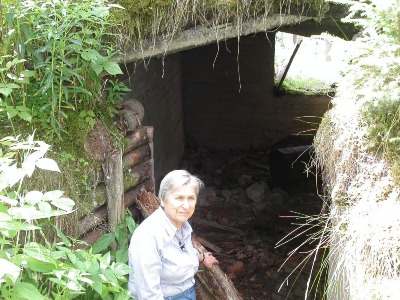
Fania Yocheles Brantsovsky, born in 1922, who lost her entire family in the Holocaust, escaped the Vilna Ghetto several moments before it was encircled by police preparing for its final liquidation on 23 September 1943. Together with Dobke Develtov [update: who passed away in 2012 in Los Angeles], she made it to this underground anti-Nazi partisan fort that was home to fighters aligned with the Soviet partisans. The precise number of inhabitants varied with newcomers and deaths in battle. Fania remembers at one time 99 of 101 were Jewish Vilna Ghetto escapees, at another 101 of 107. An underground bunker like this was home until the fall of Nazi rule in July 1944.
Along with other Holocaust Survivors who resisted — including Yitzhak Arad and Rachel Margolis — Ms Brantsovsky, librarian of the Vilnius Yiddish Institute, has in recent years been the object of a campaign of defamation and harassment in Lithuania.
The antisemitic press has targeted her (January 2008). Armed police came to search for her (May 2008). Prosecutors told the press she could not be found (May 2008). The editor of Lithuania’s main news portal called for her to be tried (May 2009). The mainstream media, citing ruling-party members of Lithuania’s parliament, branded her a war criminal (Oct 2009). And one of the country’s leading associations for human rights (!) demanded that she and other Jewish partisan veterans be ‘sentenced’ for committing ‘a massive slaughter’ (Dec. 2010).
All in the absence of any charge or iota of evidence.
Continue reading
◊
by Dovid Katz
◊

Fania Yocheles Brantsovsky, born in 1922, who lost her entire family in the Holocaust, escaped the Vilna Ghetto several moments before it was encircled by police preparing for its final liquidation on 23 September 1943. Together with Dobke Develtov [update: who passed away in 2012 in Los Angeles], she made it to this underground anti-Nazi partisan fort that was home to fighters aligned with the Soviet partisans. The precise number of inhabitants varied with newcomers and deaths in battle. Fania remembers at one time 99 of 101 were Jewish Vilna Ghetto escapees, at another 101 of 107. An underground bunker like this was home until the fall of Nazi rule in July 1944.
Along with other Holocaust Survivors who resisted — including Yitzhak Arad and Rachel Margolis — Ms Brantsovsky, librarian of the Vilnius Yiddish Institute, has in recent years been the object of a campaign of defamation and harassment in Lithuania.
The antisemitic press has targeted her (January 2008). Armed police came to search for her (May 2008). Prosecutors told the press she could not be found (May 2008). The editor of Lithuania’s main news portal called for her to be tried (May 2009). The mainstream media, citing ruling-party members of Lithuania’s parliament, branded her a war criminal (Oct 2009). And one of the country’s leading associations for human rights (!) demanded that she and other Jewish partisan veterans be ‘sentenced’ for committing ‘a massive slaughter’ (Dec. 2010).
All in the absence of any charge or iota of evidence.
“I dream that good people from all over the world will not forget the Holocaust in Lithuania or our struggle to stay alive and to fight the Nazis and their collaborators, that for generations to come they will make their way here to look and see where we, a hundred Vilna Ghetto survivors who lost our entire families, lived, loved, fought, and dreamt of a better tomorrow.” — Fania Yocheles Brantsovsky
Continue reading
 Lithuanian poet, scholar and humanist Tomas Venclova (Yale University) publishes a major new essay. English here, excerpt here.
Lithuanian poet, scholar and humanist Tomas Venclova (Yale University) publishes a major new essay. English here, excerpt here.
MEP Leonidas Donskis asks: ‘What Happened to Us?’
Continue reading
 Seven constructive solutions proposed to transform Lithuanian-Jewish relations and restore an atmosphere of civil-society democratic debate. Here. Also, draft text suggested as starting point for replacement of the Prague Declaration. Plus: Draft Reading List on the Lithuanian Holocaust.
Seven constructive solutions proposed to transform Lithuanian-Jewish relations and restore an atmosphere of civil-society democratic debate. Here. Also, draft text suggested as starting point for replacement of the Prague Declaration. Plus: Draft Reading List on the Lithuanian Holocaust.
In May 2010 a Lithuanian court legalized public displays of swastikas, with nearly no reaction from foreign embassies or human rights groups. Reports here and here. Jewish community’s reaction here. See also the page on Antisemitism. On the term swasticals, see our report for 8 May 2010.
REPRESENTATIVE SELECTION
11 March 2008
Gedimino Boulevard, Vilnius. This is the ‘Lithuanian swastika’ with the added lines meant to evoke the ‘Columns of Gediminas‘. Details and video of the parade here.
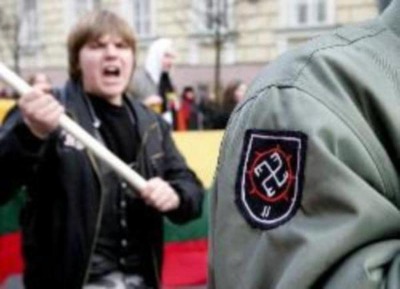
16 February 2010
Continue reading
Posted in Antisemitism & Bias, Celebrations of Fascism, Christian-Jewish Issues, Lithuania, Litvak Affairs, News & Views, Politics of Memory, Swastikas in Lithuania, Symbology
|
Tagged swastica sanitization, swastikas in Eastern Europe, swastikas in Lithuania
|
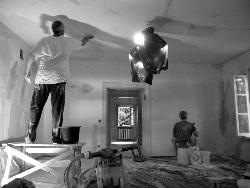 Vilnius’s one Holocaust museum, The Green House, shut down for renovations at the start of August 2010, at the height of the tourist season. Tourists are now limited to the Holocaust-obfuscating Genocide Museum, the Genocide Center, and Gruto Parkas. The Holocaust Studies community internationally is moreover profoundly disturbed by persistent efforts to undermine Rachel Kostanian, the Green House’s esteemed director of twenty years’ standing, and the efforts to replace her with a ‘compliant’ nationalist operative. Full story here
Vilnius’s one Holocaust museum, The Green House, shut down for renovations at the start of August 2010, at the height of the tourist season. Tourists are now limited to the Holocaust-obfuscating Genocide Museum, the Genocide Center, and Gruto Parkas. The Holocaust Studies community internationally is moreover profoundly disturbed by persistent efforts to undermine Rachel Kostanian, the Green House’s esteemed director of twenty years’ standing, and the efforts to replace her with a ‘compliant’ nationalist operative. Full story here
‘The Museum of Genocide Victims’
Gedimino Boulevard 42, Vilnius
A summer 2010 visit to a major Baltic tourist attraction.
by Dovid Katz
THE QUESTION: Can you imagine a Museum of Genocide Victims — in the capital of a country with the highest proportion in Europe of Holocaust genocide of its Jewish population — that does not mention the word Holocaust or the name of the nearby infamous mass-killing site, where 100,000 civilians were murdered? That avoids any reference to the actual genocide that occurred in the country? That includes antisemitic exhibits with no commentary? That is state-sponsored in the capital of a European Union member state?
Continue reading
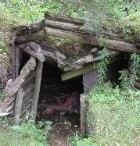 A leading news portal attacks visiting Israeli soldiers for a planned visit to the Last Jewish Anti-Nazi Fort, where around 100 Jewish escapees from the Vilna Ghetto found refuge in 1943 and 1944. The fort’s remnants are rapidly disappearing. Campaign mounted for its preservation.
A leading news portal attacks visiting Israeli soldiers for a planned visit to the Last Jewish Anti-Nazi Fort, where around 100 Jewish escapees from the Vilna Ghetto found refuge in 1943 and 1944. The fort’s remnants are rapidly disappearing. Campaign mounted for its preservation.
Professor Mikhail Iossel, director of Summer Literary Seminars (SLS) and the newly established Litvak Studies Institute (LSI) released this statement today on the LSI website [archived copy].
Litvak Studies Institute Protests Lithuanian Government’s “Fake Litvak” Forum, Calls on State to Halt PR Gimmickry and Reverse Anti-Jewish Policies
Posted in Press — 20 July 2010
For the dwindling number of aged Litvak survivors who grew up in the East European Jewish civilization decimated by the Holocaust, the anti-Jewish and Holocaust-distorting policies of the Lithuanian government in recent years are deeply painful.
Continue reading
Posted in "Jewish" Events as Cover?, Antisemitism & Bias, Double Games, Identity Theft of Litvak Heritage, Lithuania, Litvak Affairs, Mikhail Iossel, News & Views, The Great SLS About-Face, What Do Fake Litvak Games Look Like?
|
Tagged Andrius Kubilius, Deividas Matulionis, Dovid Katz, Fake Litvak Forum, Holocaust in the Baltics, Jewish partisans in Lithuania, Lithuanian-Jewish relations, Litvak Studies Institute (LSI), Mikhail Iossel, Mikhail Iossel + Vilnius, Summer Literary Seminars (SLS Lithuania)
|
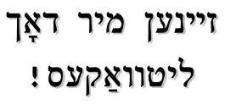 In the summer of 2010, Holocaust Survivors protested the government’s new ‘Imposter Litvak’ PR campaign as the PM’s aide boasted of $$ from ‘rich Litvaks’. ALJ, SWC and LSI issue statements, noting continuing Holocaust distortion and the travesty of attempted national identity theft perpetrated against a tiny remnant minority. An anguished Survivor speaks of his pain. UPDATE: Sources close to the Lithuanian Consulate in NY are circulating this proposal, with its list of links representing government PR positions only. Unconfirmed reports claim involvement of a recipient of an award from the Consulate. This website’s proposals for serious measures to resolve the current issues.
In the summer of 2010, Holocaust Survivors protested the government’s new ‘Imposter Litvak’ PR campaign as the PM’s aide boasted of $$ from ‘rich Litvaks’. ALJ, SWC and LSI issue statements, noting continuing Holocaust distortion and the travesty of attempted national identity theft perpetrated against a tiny remnant minority. An anguished Survivor speaks of his pain. UPDATE: Sources close to the Lithuanian Consulate in NY are circulating this proposal, with its list of links representing government PR positions only. Unconfirmed reports claim involvement of a recipient of an award from the Consulate. This website’s proposals for serious measures to resolve the current issues.
O P I N I O N
by Tomas Venclova
This authorized translation of the Lithuania original which appeared today in Bernardinai.lt was prepared by Geoff Vasil for Defending History and appears here with the author’s approval.
The section of the essay on current Lithuanian Jewish issues starts here.
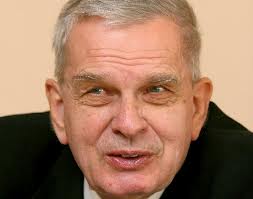
Tomas Venclova
423 years before Christ’s birth, Aristophanes’ comedy The Clouds was performed in Athens during the festival at the Great Dionysia. It only won third place, Cratinus’ comedy The Bottle (about the dramatist’s own battle with alcohol) taking first place, and Ameipsias’ play, about which we know almost nothing, placing second. These other comedies haven’t survived, but we are still reading The Clouds today. In terms of literature, this is probably Aristophanes’ greatest work, with a superb poetic chorus—and it’s undeniably funny.
Continue reading
Posted in Collaborators Glorified, Croatia, History, Lithuania, News & Views, Opinion, Politics of Memory, Tomas Venclova
|
Tagged Double Genocide, Efraim Zuroff, Lithuanian Provisional Government of 1941, Tomas Venclova
|
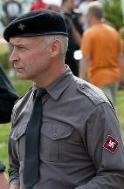 The Estonian president obfuscates the Holocaust during his Jerusalem visit by recombinating perpetrators and victims as ‘partners’. Here; 2.
The Estonian president obfuscates the Holocaust during his Jerusalem visit by recombinating perpetrators and victims as ‘partners’. Here; 2.
Also: ADL’s Abe Foxman protests July 31 march in Estonia honoring Nazi SS. Here + JTA report.
Video. NCSJ.
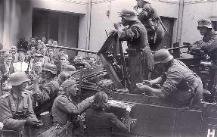 A Latvian court approved & police nixed a Riga March celebrating Hitler’s 1941 Invasion. Still, the June 2010 event went ahead with a wreath-laying at Riga’s Liberty Monument to celebrate the Nazi army’s arrival and warm welcome. Here, 2, 3, 4.
A Latvian court approved & police nixed a Riga March celebrating Hitler’s 1941 Invasion. Still, the June 2010 event went ahead with a wreath-laying at Riga’s Liberty Monument to celebrate the Nazi army’s arrival and warm welcome. Here, 2, 3, 4.
Also: Far-right racist parties team up. Here.
A new law in effect criminalizing anti Double Genocide opinions has been passed by the Lithuanian parliament and signed into law by the president. Full text of the law. In English translation. The move followed adoption of a similar statute by Hungary’s new right-wing government.
See also:
———
UPDATES (TO SEPT. 2011):
Comments by Dovid Katz in 2009 and 2011
The new law criminalizes debate on the Holocaust and World War II, imposing punishments that include prison sentences of up to two years for those who would argue that Soviet crimes in Lithuania did not constitute genocide (hence: upon those who would challenge the notion that ‘Soviet and Nazi crimes are equal’). The opposing view (e.g. of this website) holds that Soviet crimes in Lithuania were horrendous but did not constitute genocide (following Donskis 2009, Katz 2009 etc; see page on Soviet crimes and draft response to the Prague Declaration).
Continue reading
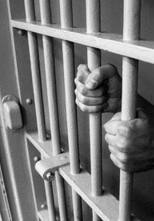 On 29 June 2010, the Lithuanian Parliament criminalized the view that Soviet crimes in Lithuania do not rise to Genocide, in effect making belief in red-brown equivalence a matter of law.
On 29 June 2010, the Lithuanian Parliament criminalized the view that Soviet crimes in Lithuania do not rise to Genocide, in effect making belief in red-brown equivalence a matter of law.
The move followed adoption of a similar statute by Hungary’s new right-wing government.
The Lithuanian law’s framers explained earlier that establishing red-brown equality was the motive. Punishment maxes out at 2 Years in jail (original draft law was for 3 years). There is a new widespread reluctance to speak up freely in eastern EU democracies, even if nobody is charged or punished. Work of serious historians is crippled as dissenters lose their jobs.
There was no comment from the US embassy in Vilnius.
[More detailed report here.]
Algirdas Brazauskas (1932-2010), visionary first elected president and later prime minister of free Lithuania died today in Vilnius. In each of his land’s highest offices he proved himself a leader in the grand spirit of the multicultural Grand Duchy of Lithuania who will be properly appreciated long after our time.
From the start of Lithuania’s new history as a proud democratic nation, Algirdas Brazauskas understood that it did no good for his country that war criminals had been rehabilitated by ultranationalist officials.
He paid tribute to Jewish partisan veterans for helping to free Lithuania from Nazi tyranny. As president, he honored Prof Dov Levin. As prime minister, he issued a certificate of recognition to Dr Rachel Margolis.
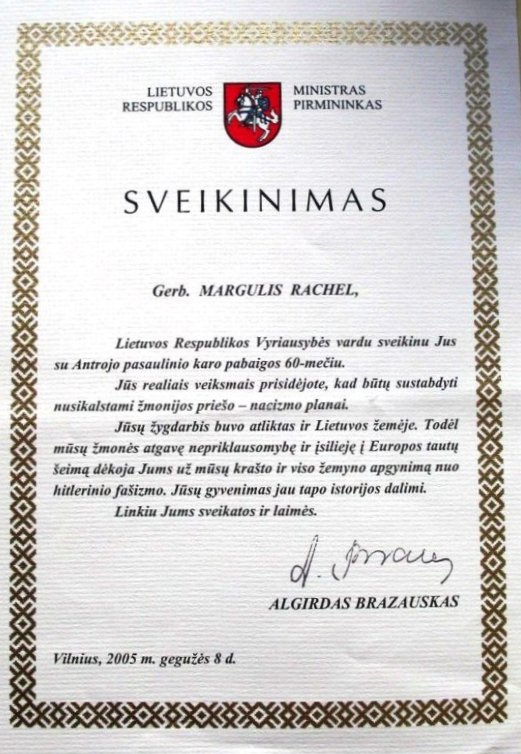
President Brazauskas’s historic speech to the Israeli Knesset in Jerusalem on 1 March 1995 will never be forgotten (full text here). 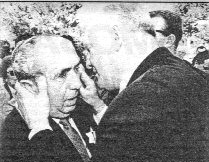 But in modern Litvak collective memory, there is perhaps one incident, that took place one day before, that will be remembered even more. The Lithuanian delegation was met by a picket line of Holocaust survivors near Yad Vashem. One elderly survivor, Y. Brosh, whose entire family was murdered at Ponar, made his feelings known robustly. Like the other survivors who protested, he was wearing a yellow star on his jacket. President Brazauskas went over to to the man, hugged him and kissed him.
But in modern Litvak collective memory, there is perhaps one incident, that took place one day before, that will be remembered even more. The Lithuanian delegation was met by a picket line of Holocaust survivors near Yad Vashem. One elderly survivor, Y. Brosh, whose entire family was murdered at Ponar, made his feelings known robustly. Like the other survivors who protested, he was wearing a yellow star on his jacket. President Brazauskas went over to to the man, hugged him and kissed him.
Continue reading
Posted in A 21st Century Campaign Against Lithuanian Holocaust Survivors?, Bold Citizens Speak Out, Fania Yocheles Brantsovsky (Fania Brancovskaja): 1922-2024, Human Rights, Israel, Lithuania, News & Views, Obituaries, United States, Vilnius Yiddish Institute
|
Tagged Algirdas Brazauskas, Fania Yocheles Brantsovsky, Holocaust in Lithuania, Rachel Margolis
|
The Lithuanian Institute of History’s less than impressive response to the 15 June parliamentary amendment of the criminal code. BNS report.
Hopefully individual historians will respond rather more vigorously, especially those who specialize in Judaic and Holocaust studies, who risk further loss of credibility in the wake of continued silence.
 Rachel Kostanian, the courageous director, valiantly keeps alive one of the rare local bastions of public integrity on the Holocaust in Lithuania, having constantly to fend off obstacles. Read Esther Goldberg Gilbert’s portrait in the special Jewish New Year’s supplement on great Jewish women of the ages in the
Rachel Kostanian, the courageous director, valiantly keeps alive one of the rare local bastions of public integrity on the Holocaust in Lithuania, having constantly to fend off obstacles. Read Esther Goldberg Gilbert’s portrait in the special Jewish New Year’s supplement on great Jewish women of the ages in the 
 Lithuanian poet, scholar and humanist Tomas Venclova (Yale University) publishes a major
Lithuanian poet, scholar and humanist Tomas Venclova (Yale University) publishes a major 

 Vilnius’s one Holocaust museum,
Vilnius’s one Holocaust museum,  A leading news portal attacks
A leading news portal attacks In the summer of 2010,
In the summer of 2010, 
 The Estonian president obfuscates the Holocaust during his Jerusalem visit by recombinating perpetrators and victims as ‘partners’.
The Estonian president obfuscates the Holocaust during his Jerusalem visit by recombinating perpetrators and victims as ‘partners’.  A Latvian court approved & police nixed a Riga March celebrating Hitler’s 1941 Invasion. Still, the June 2010 event went ahead with a wreath-laying at Riga’s Liberty Monument to celebrate the Nazi army’s arrival and warm welcome.
A Latvian court approved & police nixed a Riga March celebrating Hitler’s 1941 Invasion. Still, the June 2010 event went ahead with a wreath-laying at Riga’s Liberty Monument to celebrate the Nazi army’s arrival and warm welcome.  On 29 June 2010, the Lithuanian Parliament
On 29 June 2010, the Lithuanian Parliament 
 But in modern Litvak collective memory, there is perhaps one incident, that took place one day before, that will be remembered even more. The Lithuanian delegation was met by a picket line of Holocaust survivors near Yad Vashem. One elderly survivor, Y. Brosh, whose entire family was murdered at Ponar, made his feelings known robustly. Like the other survivors who protested, he was wearing a yellow star on his jacket. President Brazauskas went over to to the man, hugged him and kissed him.
But in modern Litvak collective memory, there is perhaps one incident, that took place one day before, that will be remembered even more. The Lithuanian delegation was met by a picket line of Holocaust survivors near Yad Vashem. One elderly survivor, Y. Brosh, whose entire family was murdered at Ponar, made his feelings known robustly. Like the other survivors who protested, he was wearing a yellow star on his jacket. President Brazauskas went over to to the man, hugged him and kissed him.